The festive season is a time for joy, celebration, and togetherness. However, for our pets, this period can introduce a range of hazards that could dampen the holiday spirit. At The Vale Veterinary Group, we understand the importance of keeping your pets safe and healthy. By addressing potential health risks and offering practical solutions, we can ensure your pets enjoy the holidays just as much as you do.
Common Holiday Hazards for Pets
The holidays transform our homes with decorations, special foods, and gatherings, each presenting unique risks to pets. Toxic foods such as chocolate, xylitol (found in sugar-free products), and grapes can pose serious health risks. Ingestion of these substances can lead to acute health crises, such as chocolate toxicity, which affects the heart and nervous system, potentially leading to seizures or even death if untreated. Xylitol can cause a rapid insulin release, resulting in hypoglycemia, which can be life-threatening.
Decorations like tinsel, candles, and glass baubles are also hazardous. Tinsel can cause intestinal blockages if swallowed, while glass baubles can lead to cuts or internal injuries. The hustle and bustle of holiday gatherings can create stressful environments for pets, leading to anxiety or behavioural changes. Signs of distress or poisoning include vomiting, diarrhea, lethargy, or changes in behaviour. For guidance on handling such emergencies, visit our When Your Pet is Not Well page.
Medical Perspective on Holiday Hazards
From a veterinarian’s standpoint, understanding the medical implications of these hazards is crucial. For instance, chocolate contains theobromine and caffeine, which can lead to symptoms ranging from mild agitation to severe cardiac arrhythmias. Treatment involves inducing vomiting, administering activated charcoal, and supportive care, including IV fluids and medications to control heart rhythms.
Preventing access to these substances is the best strategy. Keep toxic foods out of reach and monitor your pet closely. Use pet gates to block off areas where food is prepared or served, and instruct guests not to feed pets scraps.
Food Safety During the Holidays
Keeping harmful foods out of reach is critical. Avoid giving pets scraps of fatty meats, bones, chocolate, and sweets. Fatty foods can cause pancreatitis, a painful and potentially severe condition requiring veterinary intervention. Instead, prepare pet-safe treats, such as homemade dog biscuits with pumpkin or apple slices for cats. These allow pets to join in the festivities without harm.
During family meals, keep pets out of the dining area to prevent accidental ingestion of toxic foods. Pets are opportunists, and a moment’s distraction could lead to an emergency visit to the vet. If you suspect your pet has ingested something harmful, contact our team immediately.
Decoration and Environment Safety
When decorating, place baubles, especially fragile and small ones, out of pets’ reach. Opt for battery-operated candles to prevent burns or fires. Consider using pet-friendly decorations like plastic or wooden baubles that don’t shatter. Always secure your Christmas tree to prevent it from toppling over and injuring your pet.
Proactive Pet Safety
You can create a safe and enjoyable environment for your pet without compromising the festive cheer. These straightforward tips will help you focus on the joy of the holiday season, knowing your pet is happy and secure.
1. Food Safety: Preventing Toxic Encounters
- Keep Dangerous Foods Out of Reach: Many festive treats are harmful to pets. Chocolate, alcohol, grapes, raisins, xylitol (found in sugar-free products), onions, and garlic are toxic. Store these items in secure, inaccessible places.
- Inform Your Guests: Politely remind visitors not to share table scraps with your pet, regardless of how persuasive those big, soulful eyes might seem.
- Securely Dispose of Leftovers: Ensure rubbish bins are secure and out of reach from curious pets. Dispose of bones, fatty scraps, and food wrappings responsibly.
2. Decoration Safety: Tinsel and Tree Precautions
- Pet-Proof Your Christmas Tree: Anchor your tree securely to prevent it from toppling. Avoid using fragile glass baubles, edible decorations, or tinsel, which can cause severe intestinal blockages if ingested.
- Protect Lights and Cables: Conceal or cover electrical cords to prevent pets from chewing them and risking electric shock. Use cord protectors or deterrent sprays if necessary.
- Avoid Dangerous Additives: If you have a real tree, do not use water additives like preservatives or aspirin in the tree stand, as these can be toxic if your pet drinks the water.
- Opt for Flameless Candles: Real candles pose a risk of fire or burns if knocked over. Use battery-operated flameless candles in areas accessible to your pets.
3. Behavioural Wellness: Reducing Stress
- Provide a Safe Space: Create a quiet, secure retreat for your pet, complete with their favourite bed, toys, and access to fresh water. This can help them relax if the festivities become overwhelming.
- Stick to a Routine: Maintain your pet’s usual schedule for feeding, walks, and playtime to provide stability amidst the holiday excitement.
- Offer Enrichment Activities: Provide puzzle feeders or chew toys to keep your pet entertained and less likely to investigate decorations or gifts.
4. Visitor Awareness: Managing Busy Doorways
- Secure Greetings: Ensure your pet is safely contained when guests arrive or leave, as an open door can be an easy escape route.
- Check ID Tags and Microchips: Verify that your pet’s identification tags and microchip information are up-to-date in case they manage to slip out during the commotion.
- Plan for Nervous Pets: For pets that are anxious around strangers, consider using a crate or keeping them on a lead to manage interactions.
5. Gift-Giving Smarts: Safe Surprises for Pets
- Inspect Pet Toys: Select toys appropriate for your pet’s size and chewing habits. Avoid toys with small parts that could present choking hazards.
- Be Mindful with Wrapping: Keep gift wrap, ribbons, and bows out of reach to prevent accidental ingestion or blockages.
- Supervise New Items: If gifting your pet something new, monitor them while they enjoy it to ensure there are no unexpected safety issues.
- Check out the AVMA’s guide for Healthy Holiday GIfts for Pets.
6. General Home Safety: Proactive Measures
- Secure Hazardous Items: Keep chemicals, medications, and household cleaners safely stored. Ensure poinsettias, holly, mistletoe, and lilies—common festive plants that are toxic to pets—are out of reach.
- Supervise Outdoor Time: If your celebrations include outdoor activities, ensure fences and gates are secure. Remove hazards such as ice-melting chemicals or open fire pits from your garden.
- Prepare for Emergencies: Keep emergency contact numbers handy, including The Vale and an animal poison control service such as the Animal Poison Line.
Managing Stress and Anxiety in Pets
Large gatherings can overwhelm pets, leading to stress and anxiety. To manage this, provide a quiet space where your pet can retreat away from the noise. This area should have comfortable bedding, water, and some favourite toys. Playing soothing music or using a pheromone diffuser can help them relax.
Observing your pet’s behaviour can help you understand their stress levels and needs. Recognizing signs of stress, such as excessive panting, pacing, or hiding, allows for timely intervention. Training and socialization before the holiday season can also prepare pets for the influx of visitors.
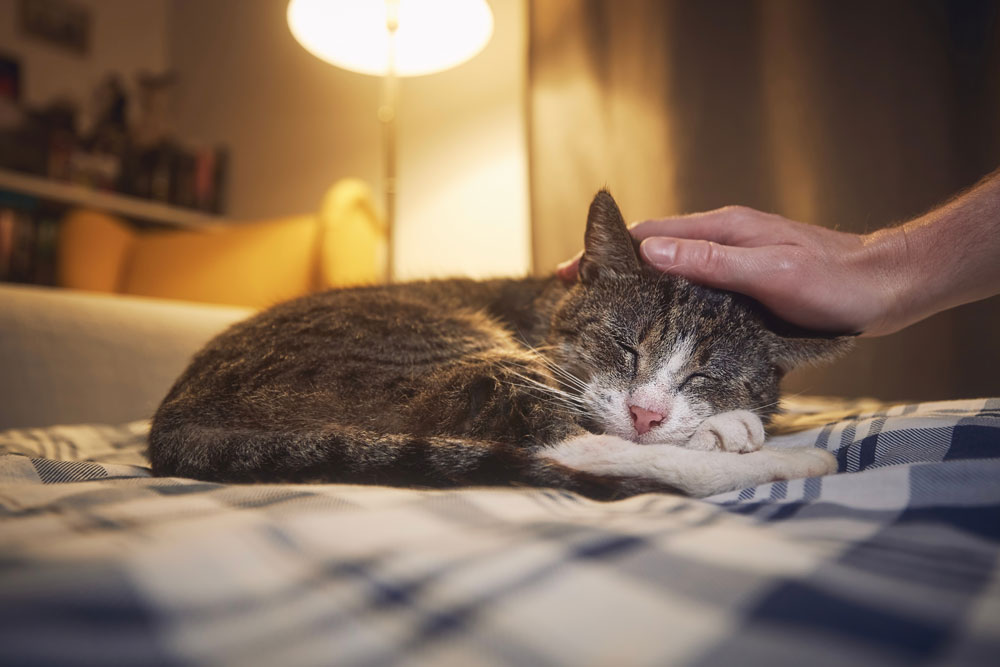
The Role of Regular Veterinary Care in Holiday Safety
Routine veterinary visits are pivotal in preventing holiday mishaps. These check-ups can detect health issues before they become emergencies. At The Vale Veterinary Group, we emphasize the importance of regular health checks, which are integral to a pet’s overall well-being. Understanding the costs associated with veterinary care, we recommend discussing insurance and payment options to effectively manage these expenses.
Emergency Preparedness
Knowing how to react in an emergency can be lifesaving. Signs that your pet should see a vet from The Vale right away include severe lethargy, unresponsiveness, excessive vomiting, or evidence of pain. The Vale Veterinary Group is equipped to handle such emergencies 24/7, ensuring that your pet receives prompt and effective care during the holiday season and beyond.
What an Emergency Looks Like
An emergency might manifest as sudden vomiting after ingesting chocolate or a foreign object, persistent diarrhea, or unusual lethargy. It’s essential to act quickly: contact us at The Vale, keep your pet calm, and avoid giving any home remedies unless advised by a professional.
The holiday season should be a time of joy for every member of your family, including your pets. By being aware of the potential hazards and knowing how to prevent them, you can ensure a safe and happy holiday for all. Remember, The Vale Veterinary Group is here to support you with dedicated care in any situation.
Don’t wait for an emergency. Schedule a pre-holiday check-up with The Vale Veterinary Group today to ensure your pet is as healthy as can be this festive season. Visit our Schedule an Appointment page to book your visit now. Let’s make this holiday merry and safe for your animal friends!
For additional information on keeping pets safe during the winter holidays, you can reference the RSPCA’s guides for Pets at Christmas, Keeping Pets Safe in Cold Weather, and Pets and Fireworks.

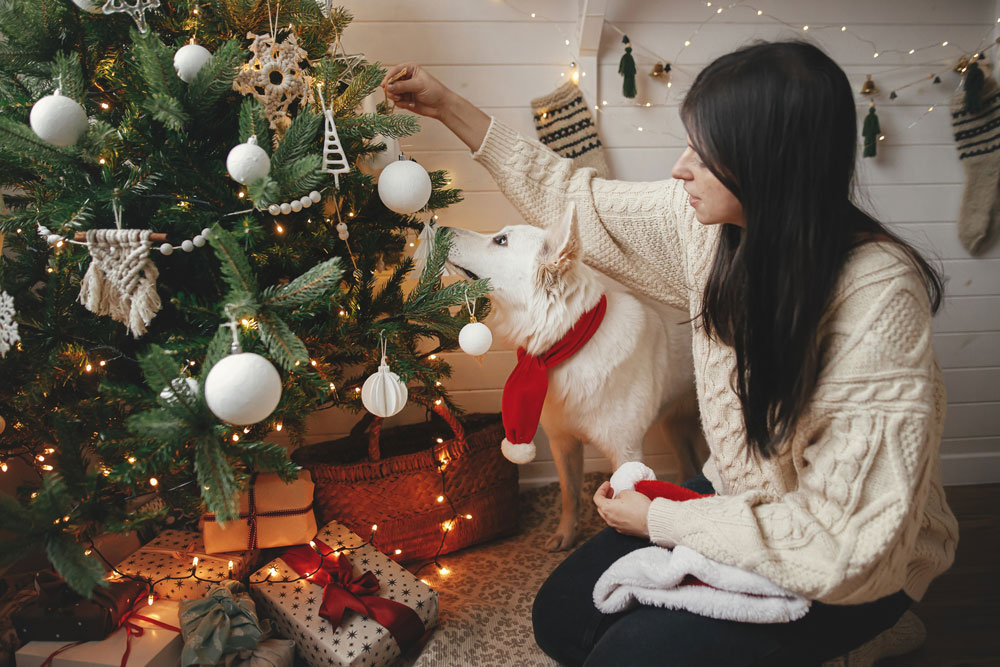
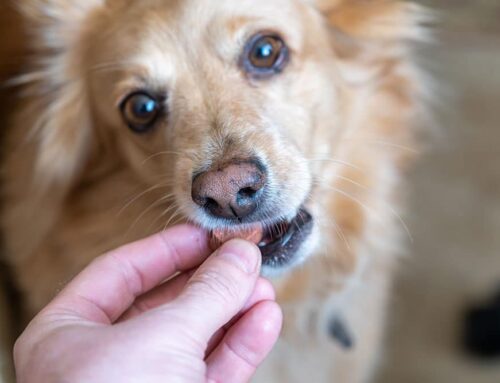
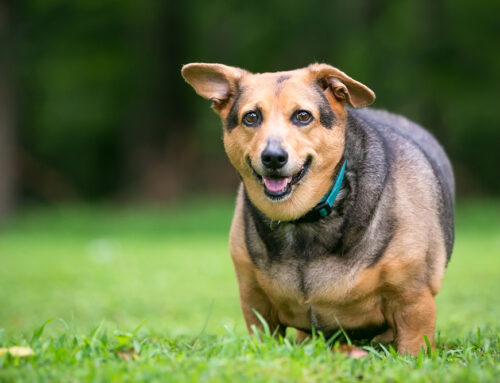
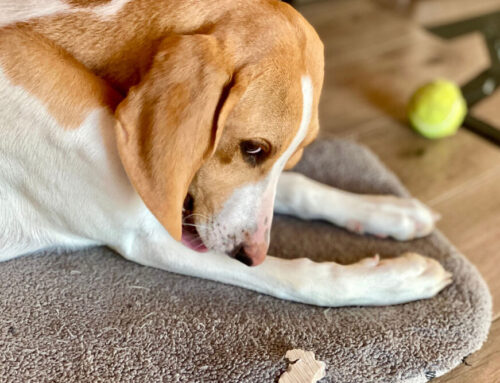
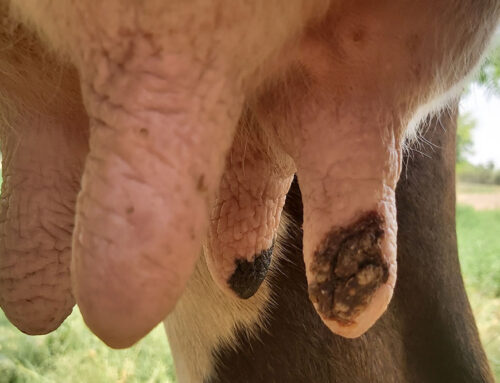

Leave A Comment